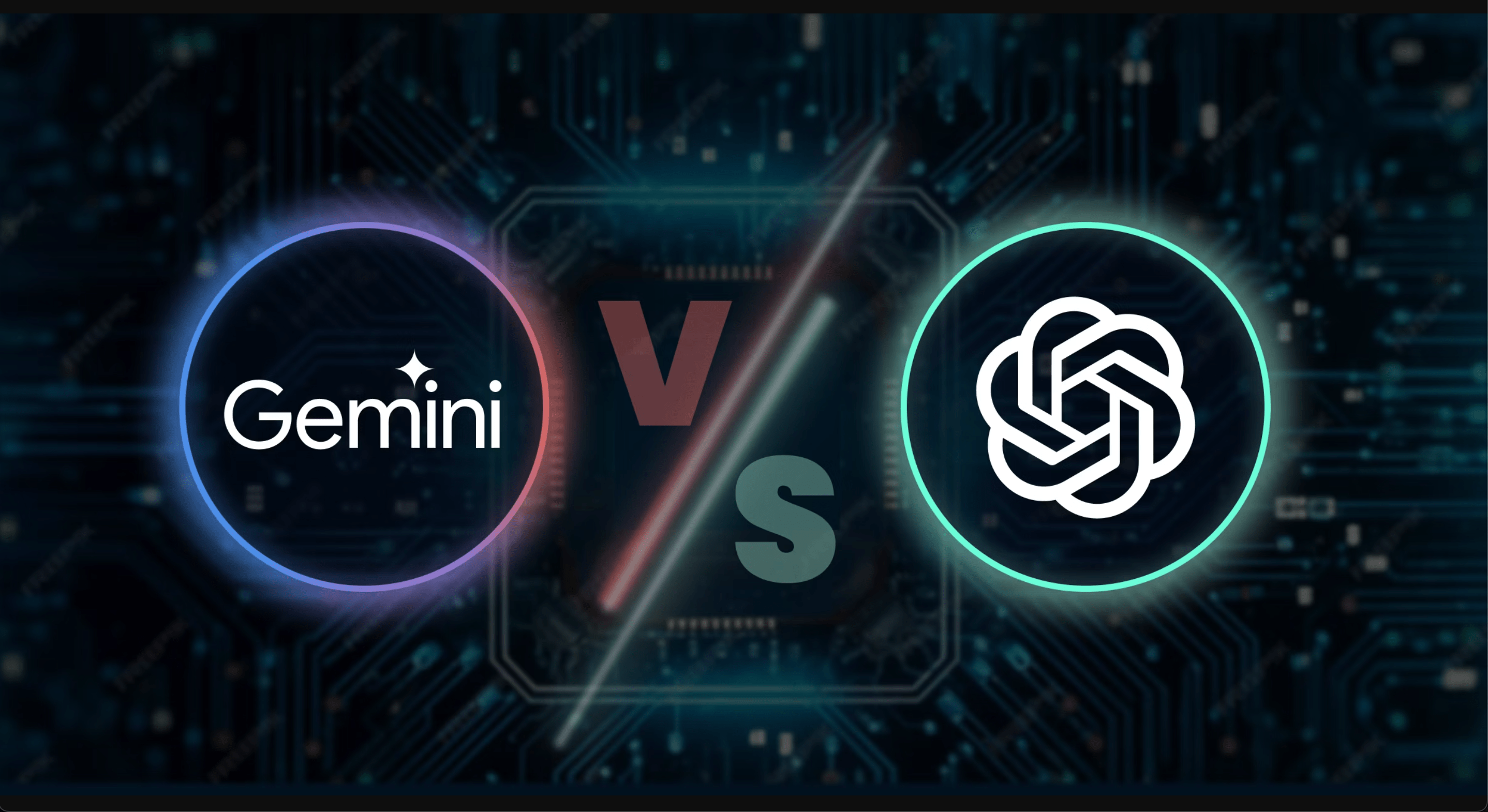ChatGPT vs. Gemini: A Comparative Analysis of AI Language Models

In the ever-evolving landscape of artificial intelligence, language models have become a focal point for both innovation and debate. Among the most discussed are OpenAI’s ChatGPT and Google’s Gemini. While both models represent cutting-edge technology, they have distinct characteristics and use cases that make them unique. This blog post will explore the key differences between ChatGPT and Gemini, helping users understand which model might best suit their needs.
Origins and Development
ChatGPT: Developed by OpenAI, ChatGPT is part of the GPT (Generative Pre-trained Transformer) family. The model leverages a transformer architecture and has been fine-tuned on vast amounts of internet text. Its development has focused on creating a model that can generate coherent and contextually relevant text, making it suitable for a wide range of applications, from casual conversation to complex problem-solving.
Gemini: Gemini, developed by Google, represents Google’s latest foray into AI-driven conversation. While details about its architecture are less public than ChatGPT, Gemini is built on Google’s extensive experience with natural language processing (NLP), particularly through its previous models like BERT and T5. Gemini aims to integrate Google’s vast search and knowledge graph capabilities, making it a powerful tool for retrieving and presenting information.

Core Strengths
ChatGPT:
- Versatility: ChatGPT is designed to handle a broad range of tasks, from generating creative writing to answering technical questions. Its ability to engage in natural conversation makes it a go-to for many users.
- Fine-tuning: OpenAI provides the ability to fine-tune the model for specific tasks, making it highly adaptable for business, education, and personal use.
- Community and Integration: With a strong community and widespread integration across platforms, ChatGPT has become a staple in AI-driven applications.
Gemini:
- Search and Knowledge Integration: Gemini’s integration with Google’s search engine and knowledge graph allows it to provide highly accurate and contextually relevant information. This makes it particularly strong in fact-based queries and research-oriented tasks.
- Contextual Understanding: Building on Google’s advancements in NLP, Gemini excels in understanding context and nuances in conversation, making it effective for complex queries where understanding the user’s intent is critical.
- Real-Time Information: With access to real-time data and Google’s search capabilities, Gemini can provide up-to-date information, which is particularly useful for current events and rapidly changing topics.
Applications and Use Cases
ChatGPT:
- Creative Writing: Ideal for generating creative content, including stories, poems, and marketing copy.
- Education: Useful as a teaching assistant or for generating educational content.
- Customer Service: Can be deployed in customer service bots, providing friendly and helpful responses to customer inquiries.
Gemini:
- Research and Fact-Checking: Perfect for users who need to retrieve accurate information quickly, such as researchers, students, and professionals.
- Real-Time Information: Excellent for staying updated on current events or looking up real-time data.
- Technical Support: Useful in technical support roles where accurate, context-aware responses are crucial.
Conclusion
Both ChatGPT and Gemini represent significant advancements in AI language models, each with its strengths and ideal use cases. ChatGPT shines in versatility and conversational ability, making it a great choice for users who value creativity and broad applicability. On the other hand, Gemini’s precision, real-time data integration, and contextual understanding make it a powerful tool for users who prioritize accuracy and efficiency.
The choice between ChatGPT and Gemini ultimately depends on your specific needs. Whether you’re looking for a conversational partner, a creative assistant, or a research tool, understanding the strengths of each model will help you make an informed decision.